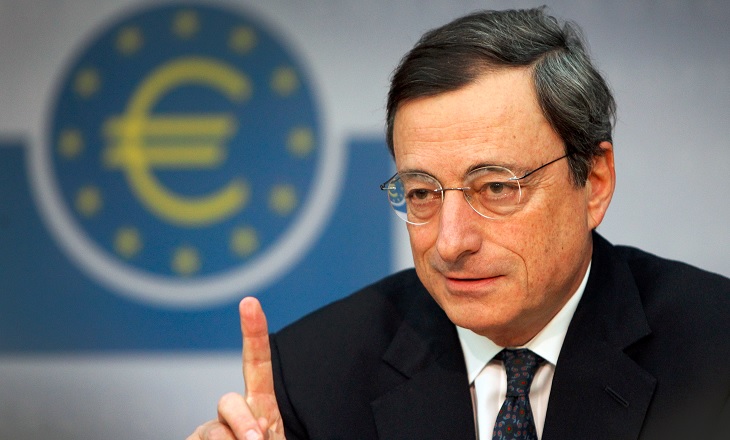The following article was written by Ipek Ozkardeskaya, Senior Market Analyst at FCA regulated broker London Capital Group Holdings plc (LON:LCG).

Ipek Ozkardeskaya, LCG
The volatility in the euro markets could be about to take off. The European Central Bank (ECB) managed to keep the suspense on its plans regarding the future of its Quantitative Easing (QE) plans, as the program is due to mature in September. President Mario Draghi refrained from giving out any details regarding the next steps in the previous monetary policy meetings. By doing so, he prevented a premature price action across the market, but he also left the market without a clear indication to base their expectations on.
This is why President Draghi’s appearances gain extra importance in traders’ eyes. Any indication would be one more piece in the puzzle and help traders pricing in the possibilities and the risks moving into the ECB’s September meeting.
Economic recovery
German and French economies posted multi-year high growth figures and the latest PMI figures helped easing worries about an eventual slowdown in the second and third quarters.
The unemployment rate fell to 9.17% across the Eurozone compared to 12% four years earlier. The German unemployment fell to the lowest levels since reunification.
Mario Draghi is optimistic about the Eurozone recovery. At his latest speech in Germany, the President said that the Quantitative Easing (QE) and forward guidance have been a success, yet refrained from revealing any crunchy details on the ECB’s QE exit plans.
Low inflation is a headache
The Eurozone inflation advanced to 2% at the beginning of the year, yet the fading rally in commodity markets, cheap energy prices and the euro appreciation pulled the inflation down to 1.3% year-on-year in July. The core inflation is at 1.2% year-on-year.
The low inflation is a headache for the ECB officials and could force them to consider less hawkish policy action to make sure to achieve the 2% inflation target in due time.
This being said, the ECB is simply expected to soften its dovish stance and eventually reduce its monthly bond purchases, yet the bank is not even close to tightening the monetary conditions at the heart of the union.
The ECB’s policy will likely remain accommodative for a reasonable period of time. The ECB’s balance sheet will continue puffing up, yet perhaps at a reduced speed.
Draghi’s Jackson Hole speech could be a non-event
The ECB President Mario Draghi will speak at the Jackson Hole meeting on Friday and will unlikely reveal any meaningful details regarding the ECB’s QE exit plans.
The net euro long speculative futures positions rose to a decade high in August. The high level of speculative positions could amplify the price volatility in both directions. The euro is expected to swing between hope and disappointment as Mario Draghi will deliver his speech on Friday.
In our opinion, the ECB will unlikely hint at its QE plans before September 7 monetary policy meeting.
The lack of indication suggests a large pallet for speculation. Reduced monthly purchases and flexible duration could be a plausible expectation. The euro’s direction after the ECB verdict will depend on the gap between the decision and the expectations. The euro could well reverse gains following the ECB verdict, if the statement fails to satisfy the hawkish expectations.
